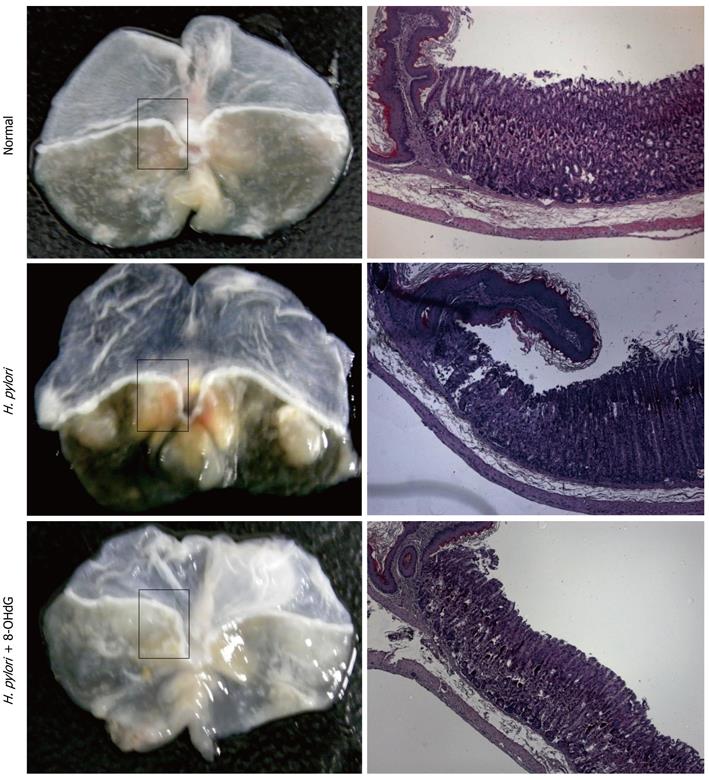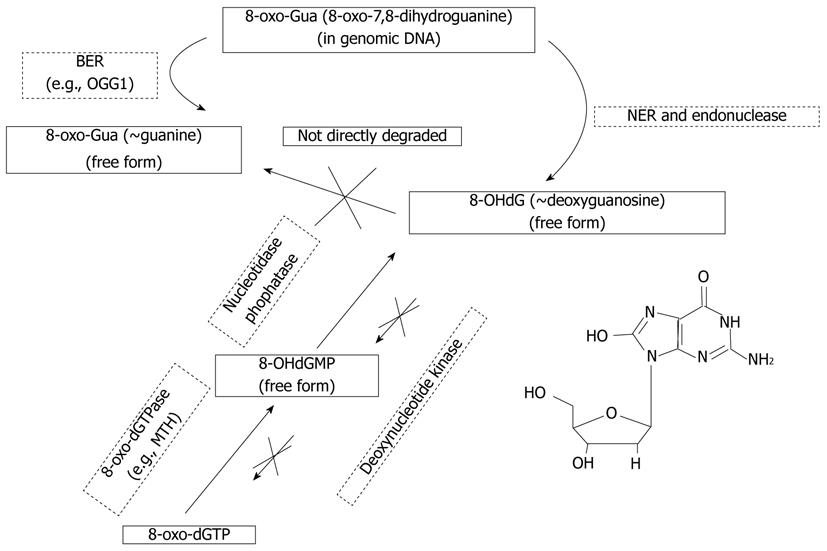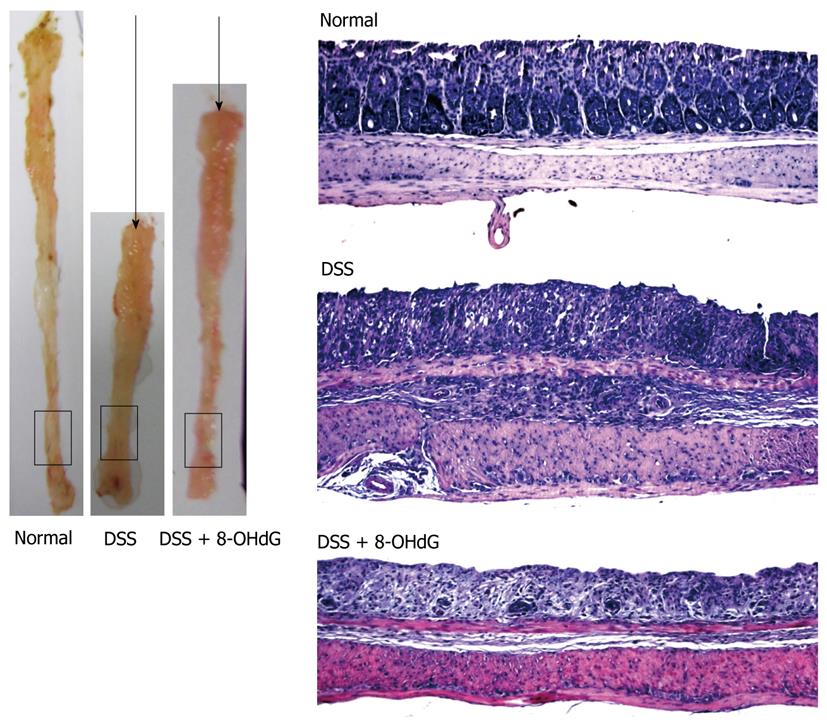Copyright
©2012 Baishideng Publishing Group Co.
World J Gastroenterol. Jan 28, 2012; 18(4): 302-308
Published online Jan 28, 2012. doi: 10.3748/wjg.v18.i4.302
Published online Jan 28, 2012. doi: 10.3748/wjg.v18.i4.302
Figure 1 Antitumorigenic action of exogenous 8-hydroxydeoxyguanosine on Helicobacter pylori-induced gastric tumorigenesis.
Helicobacter pylori (H. pylori) infection with additional administration of high-salt diet resulted in gastric tumorigenesis in interleukin-10 knockout mice. Continuous administration of exogenous 8-hydroxydeoxyguanosine (8-OHdG) led to significant prevention of H. pylori-induced gastric tumorigenesis as well as amelioration of gastritis. H. pylori infection followed with high-salt diet resulted in significant tumorigenesis as well as atrophic changes in gastric mucosa, whereas the gastric mucosa co-treated with 8-OHdG was free from tumorigenesis or atrophic changes.
Figure 2 Generation and metabolism of 8-hydroxydeoxyguanosine.
8-oxoguanine DNA glycosylase 1 (OGG1) is a DNA glycosylase enzyme involved in base excision repair (BER), and is the primary enzyme responsible for excision of 7,7-dihydro-8-oxoguanine that occurs as a result of exposure to reactive oxygen species (ROS). OGG1 is a bifunctional glycosylase, because it is able to both cleave the glycosidic bond of the mutagenic lesion, and cause strand breakage in the DNA backbone. Nucleotide excision repair (NER) is a DNA repair mechanism, which is a particularly important mechanism by which the cell can prevent unwanted mutations by removing the vast majority of ROS-induced DNA damage.
Figure 3 Ameliorating effect of exogenous 8-hydroxydeoxyguanosine against dextran sodium sulfate-induced colitis.
Dextran sodium sulfate (DSS) administration resulted in moderate to severe colitis manifested as significantly shortened colon length. However, colon length was significantly preserved by exogenous administration of 8-hydroxydeoxyguanosine (8-OHdG) (see arrows to compare the colon length), as shown by the pathological observation that the degree of DSS-induced colitis was apparently improved, suggesting that exogenous 8-OHdG had a significant preventive effect against DSS-induced colitis[47]. Eighteen mice were divided into three groups of six: a non-treated control group (Normal group); 5% DSS in tap water ingestion for 1 wk (DSS group); and DSS with daily injection of 8-OHdG (DSS + 8-OHdG group). 8-OHdG powder was dissolved in PBS and the Normal and DSS groups were treated as a negative control. Clinical phenotypes such as hematochezia and rectal prolapse were investigated and charted daily. There was no mortality observed in any of the groups. After 7 d DSS ingestion, all mice were killed and colons were removed, opened longitudinally, and rinsed with phosphate buffer solution. The lengths of colon were measured, and isolated tissues were subjected to histological examination.
- Citation: Ock CY, Kim EH, Choi DJ, Lee HJ, Hahm KB, Chung MH. 8-Hydroxydeoxyguanosine: Not mere biomarker for oxidative stress, but remedy for oxidative stress-implicated gastrointestinal diseases. World J Gastroenterol 2012; 18(4): 302-308
- URL: https://www.wjgnet.com/1007-9327/full/v18/i4/302.htm
- DOI: https://dx.doi.org/10.3748/wjg.v18.i4.302











